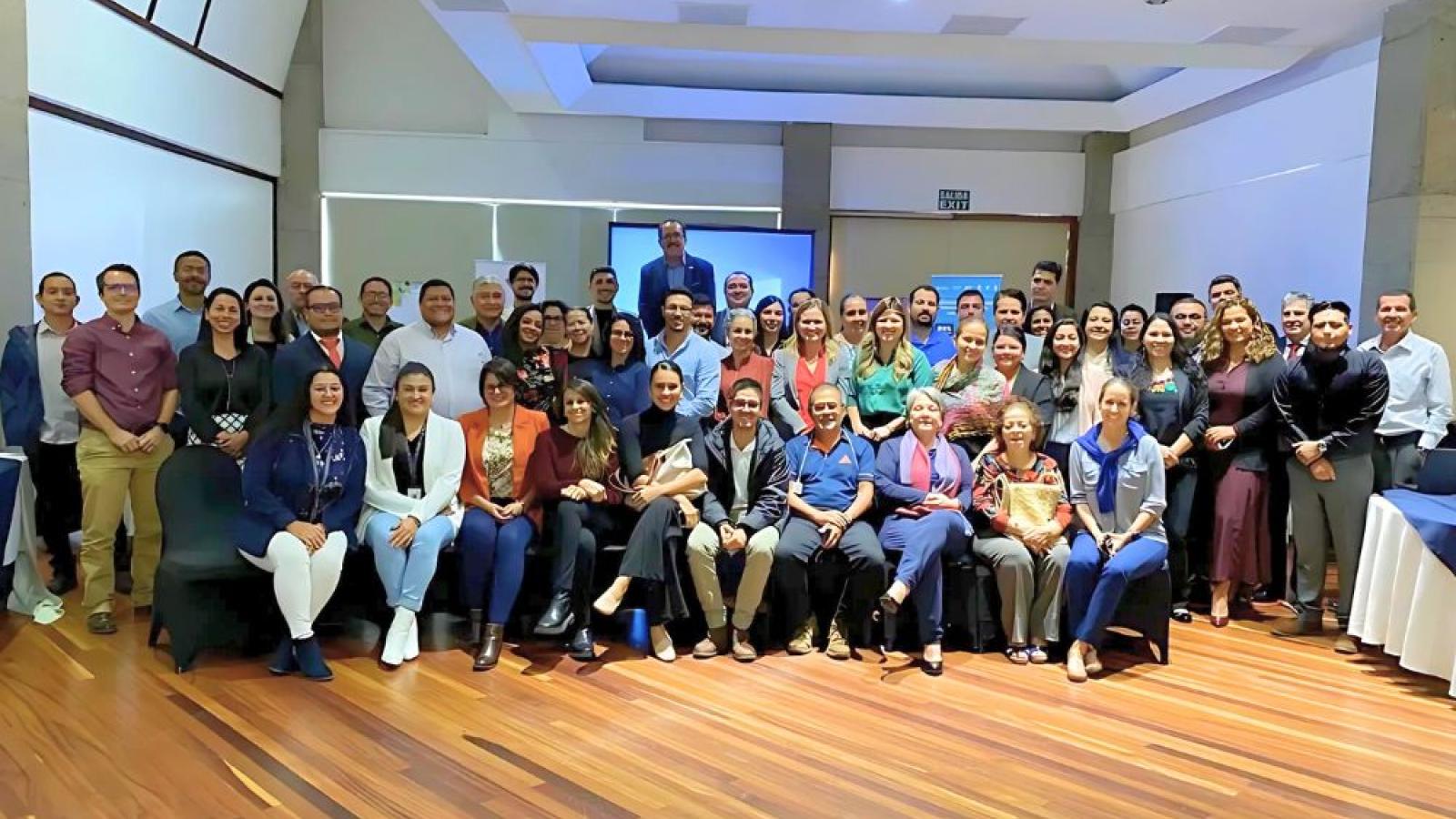Analysis
How Costa Rica is Pioneering a Green Future Through Sustainable Development
The first National Dialogue for Costa Rica addressed challenges from waste management to urban flooding as part of the UrbanShift program.
By Karishma Asarpota and Saheel Ahmed (ICLEI - Local Governments for Sustainability)
As part of Costa Rica’s efforts to transition to a green urban economy, the city of San Jose hosted the 1st UrbanShift National Dialogue on the 15th and 16th of February, 2023. This event, organized by ICLEI Mexico, Central America, and the Caribbean, brought together about 100 participants from various sectors to discuss sustainable urban development. It is part of Costa Rica’s Transition to an Urban Green Economy (TEVU) Project, supported by the Global Environment Facility (GEF) through the UrbanShift Global Platform, which supports cities around the world to adopt integrated approaches to urban development, building an equitable, zero-carbon future where both people and planet can thrive.
Costa Rica faces unique urban challenges such as waste management, urban flooding, and city greening. The UrbanShift platform connects the country with global expertise to address these issues, fostering collaboration between national and local governments to sustain its leadership in sustainability.
Advancing Sustainable Land Use Through Peri-Urban Agro-Landscapes
A major focus of the dialogue was the role of peri-urban agro-landscapes in supporting sustainable food systems. Carlos Isaac Pérez from the Ministry of Environment and Energy, Costa Rica emphasized the critical need for sustainable land use, deforestation prevention, and renewable energy initiatives to help Costa Rica meet its ambitious net-zero goals. Agro-landscapes are central to Costa Rica’s National Decarbonization Plan, and initiatives like the San Luis Natural Farm showcase how sustainable agricultural practices can reduce the carbon footprint while preserving biodiversity.
Agro-ecological methods also highlight how agriculture and conservation can co-exist, positioning Costa Rica as a leader in low-carbon, deforestation-free agricultural production. This effort reflects the country’s commitment to balancing environmental health and economic prosperity through sustainable practices.
Waste Management and the Circular Economy
Waste management remains a critical challenge for Costa Rica’s urban areas. For instance, the Municipality of Desamparados processes over 1,500 tonnes of recoverable waste annually, but gaps in public education and waste separation hinder these efforts. The dialogue emphasized the need to boost recycling rates and promote a circular economy, in line with Costa Rica's Solid Waste Management Plan. A notable case study highlighted the municipal experience in Oreamuno, Cartago, where a pilot program introduced domestic composters to households, encouraging composting as a positive environmental practice. The program discussed its objectives, operation, participants' experiences, and its successful impact on fostering a composting culture. Additionally, the ECOPARK project in Alajuela was presented as a model for integrated waste treatment under a circular economy approach. This facility processes wastewater, sludge, and waste while linking with development policies and strategies, offering a scalable model for other regions. The discussion also explored opportunities for advancing feasibility studies, detailed design, and funding for future expansion.
Urban Floods: Managing Risk
Urban flooding, exacerbated by climate change and rapid urbanization, is one of the biggest challenges facing Costa Rican cities. The dialogue emphasized the need for improved stormwater management to mitigate flood risks. Silvia Valentinuzzi from the TEVU Project outlined strategies to address urban sprawl and enhance flood resilience. A standout case is the Municipality of Belén, which integrates rainwater management with community education, ensuring residents are part of the solution. Nature-based solutions, such as green infrastructure and watershed management, were also identified as crucial for flood mitigation and urban sustainability.
Building a Greener Future: Urban Greening and Green Economy
Urban greening initiatives were a major focus of recent discussions, with projects like the reforestation of public spaces and the creation of urban gardens in La Guápil, Alajuelita, being highlighted for their positive impact on biodiversity and public health. The Center for Territorial Intelligence on Biodiversity (CITBIO) in Curridabat exemplifies the potential of urban greening through innovative projects such as green walls and water conservation systems. The dialogue emphasized the importance of expanding green infrastructure to enhance biodiversity, create healthier living environments, and connect urban areas with broader ecological networks. This urban greening strategy is central to Costa Rica's ongoing efforts to promote environmental sustainability and human well-being. Additionally, the shift toward a green economy plays a crucial role in this transformation. Initiatives like Let’s Make Compost for reducing food wastes and SUNRISE: Building Greener promotes eco-friendly construction by using recycled materials. Together, these projects contribute to the creation of green jobs, reduce environmental risks, and support Costa Rica's broader goals for a sustainable future.
Looking Forward: Costa Rica’s Roadmap for the Future
The first National-Local Dialogue (NLD) concluded with a strong commitment to developing a comprehensive roadmap that will guide Costa Rica’s urban sustainability efforts in the years to come. This roadmap will prioritize improving governance, enhancing policy implementation, and ensuring that the lessons from this dialogue are translated into concrete actions.
Since the first NLD, Costa Rica has also signed on to the Coalition for High Ambition Multilevel Partnerships (CHAMP) initiative, further cementing its commitment to sustainability. The CHAMP endorsement will be highlighted in the second dialogue.
Key initiatives will focus on:
- Resource Mobilization: Securing funding through public-private partnerships and international collaboration to support environmental regulations and infrastructure.
- Waste Management: Continuing to improve waste systems and public education to promote responsible consumption and recycling.
- Flood Resilience: Investing in nature-based solutions and infrastructure to tackle urban flooding, which will be a primary focus of the second dialogue.
- Community Engagement: Launching awareness campaigns to foster a culture of sustainability at the grassroots level.
- Policy Coherence: Ensuring that national policies are adaptable to local contexts, aligning both local and national efforts towards shared environmental goals.
In 2025, Costa Rica will convene the second dialogue to assess progress, with a particular focus on urban flooding, to continue the discussion toward a sustainable urban future.
UrbanShift supports cities around the world to adopt integrated approaches to urban development, building an equitable, zero-carbon future where both people and the planet can thrive. Click here to read the summary of Costa Rica’s First National-Local Dialogue as part of the UrbanShift program. To learn more about the Urban Shift’s project in Costa Rica click here.
If you have any questions or contributions that could support the planning of the next National-Local Dialogue in Costa Rica, as part of the UrbanShift program, please reach out to urbanshift@iclei.org.
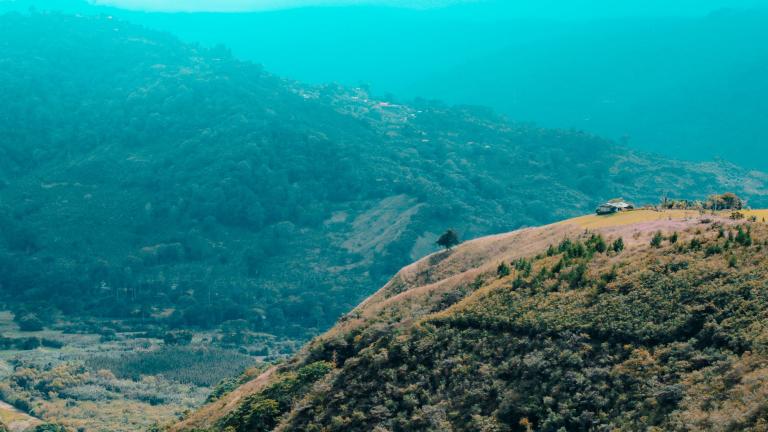
Second National-Local Dialogue for Costa Rica
The dialogue brings together local and international experts to tackle urban flooding through knowledge exchange, hands-on workshops, and policy discussions.
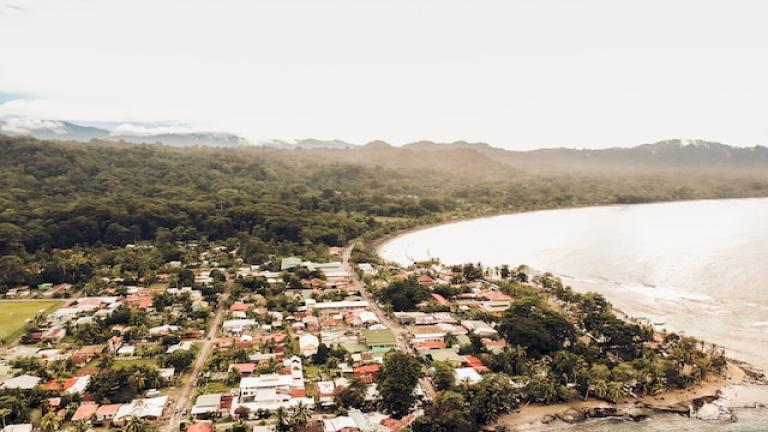
First National Dialogue for Costa Rica
Over 100 representatives spanning multiple sectors and levels of government convened to discuss Costa Rica's efforts to transition to a green economy.
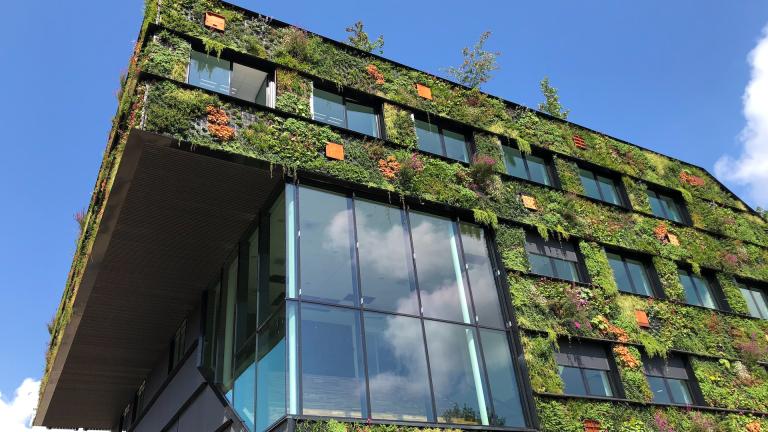
Enhancing Urban Infrastructure Resilience through Nature-Based Solutions in South Asian Cities
This webinar explores how nature can transform South Asian cities into resilient, sustainable, and thriving urban spaces.
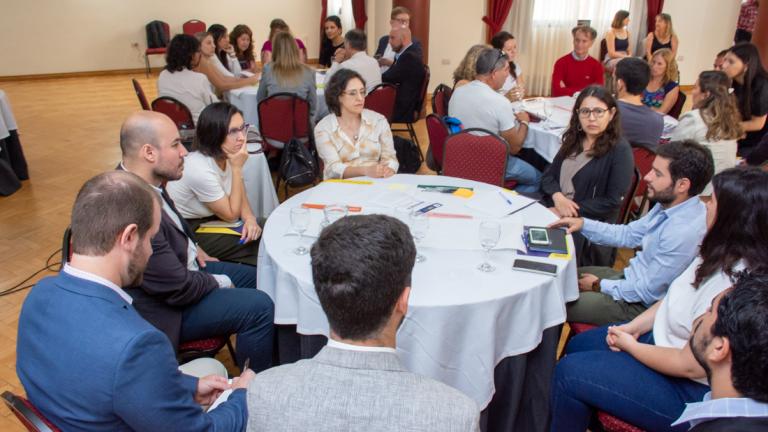
Argentina’s Road to 2030: Collaborative Climate Action
Argentina's first UrbanShift National Local Dialogue emphasized collaborative climate action, uniting national and local governments to promote sustainable urban development, align with 2030 targets, and enhance governance and financing.
